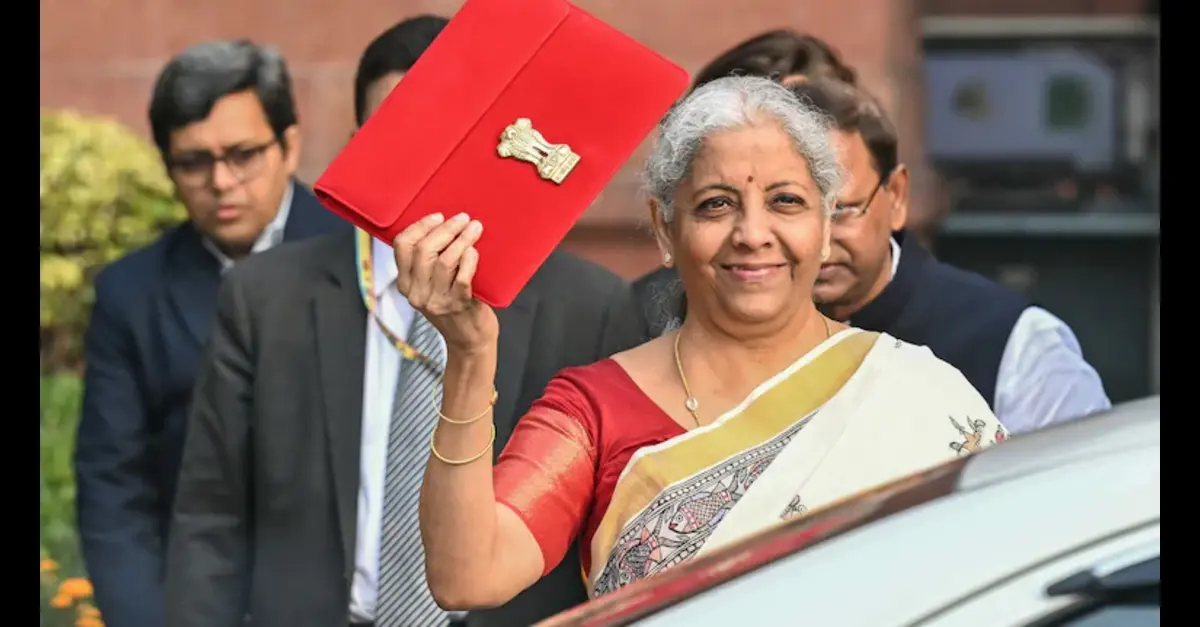INTRODUCTION
The introduction of the Union Budget 2025 will be done by the Finance Minister Nirmala Sitharaman. The budget seeks to foster economic growth together with social welfare, and fiscal responsibility through significant reforms and spending allocation. Their main focus areas revolve on providing considerable income tax relief to the middle class, increasing funding to agriculture, and managing the fiscal deficit.
Background
Union Budget 2025 is placed before the Indian economy at an equally challenging point as the rest of the world is, somewhere in the middle of a post-COVID recovery, dealing with high inflation, and geo-economic volatility. Developmental expenditure policies of the Indian economy in the recent times have revolved around construction, spending on infrastructure, digital economy, and business friendly reforms. But even as the country seeks to recession, the areas of concern remain unemployment, rural poverty, and fiscal deficit.
In the last fiscal period, the government followed a spending approach focused on capital outlay investment, enhancing manufacturing activity, and spending on welfare. The scenario was not encouraging because of certain challenges like inflation, high global interest rates, and ongoing geo-economic confrontations. It had to find a solution to balance fiscal conservatism and economic stimulus without cutting off growth by overregulation. Fiscal deficit has served as a target in specific cases, as 4.8% of GDP in 2024-25 and 4.4% of GDP in 2025-26 (Targets achieved). Public debt is growing, whereas the expectation to satisfy investors and maintain fiscal discipline at the same time leads to an economic uncertainty and as a result the expected future returns from private investment in infrastructure will be lower. Thereby, this may be achieved without a drastic effect on the existing Health, education and infrastructural financial system for which all of these have to be financed by the funding authorities, so that they can guarantee the necessary health care to every resident.
Key points
- Income Tax Reforms: With the MMM budget, taxpayers have been given relief by increasing the exemption limit in the new tax regime to ₹12 lakh along with increasing TDS limits for interest for senior citizens and rent to increase spendable income and consumption. 2. Agricultural Support: The objective of introducing the Prime Minister Dhan-Dhaanya Krishi Yojana is to promote credit availability for farmers, specifically targeting self-sufficiency in pulses production. Establishing a Makhana Board in Bihar reflects the government’s growing emphasis on regional agriculture development.
- Fiscal Consolidation: The government now aims to keep the fiscal deficit goal at 4.4% of GDP for FY 2025- 26 which is lower than the revised target of FY 2023-24 which was 4.8%. There is an effort to combine economic encouragement with fiscal responsibility to increase investors’ confidence and make sure that the overall fiscal health is maintained over the long term.
Recent Development
As with previous budgets, this year’s announcement of the budget has been met with a generally positive reaction from across the board. Industry captains have appreciated the new measures including tax relief, better support to agriculture and are expecting an increase in investment and consumer spending. However, concerns have also been expressed over the cutting of capital expenditure and overall absence of bold structural reforms which some feel are necessary for self-sustained growth over the longer run.
CONCLUSION
The Union Budget 2025 is a strategic package to tackle present economic pains in India. In pursuit of a broadly defined economic expansion as a national policy framework, the government offered tax relief, agricultural support, and fiscal consolidation but all to induce a deep temporary economic boost in turn facilitating a deep-rooted long-term economic expansion. Measurement results will largely depend, on their face, on the extent to which they are going to be successfully used, and on the extent to which the government will fare under the invisible presence it can only fight, of the structural weakness of the economy.
“PRIME LEGAL is a full-service law firm that has won a National Award and has more than 20 years of experience in an array of sectors and practice areas. Prime legal falls into the category of best law firm, best lawyer, best family lawyer, best divorce lawyer, best divorce law firm, best criminal lawyer, best criminal law firm, best consumer lawyer, best civil lawyer.”
WRITTEN BY: SUBRAT ASHISH KHARE


